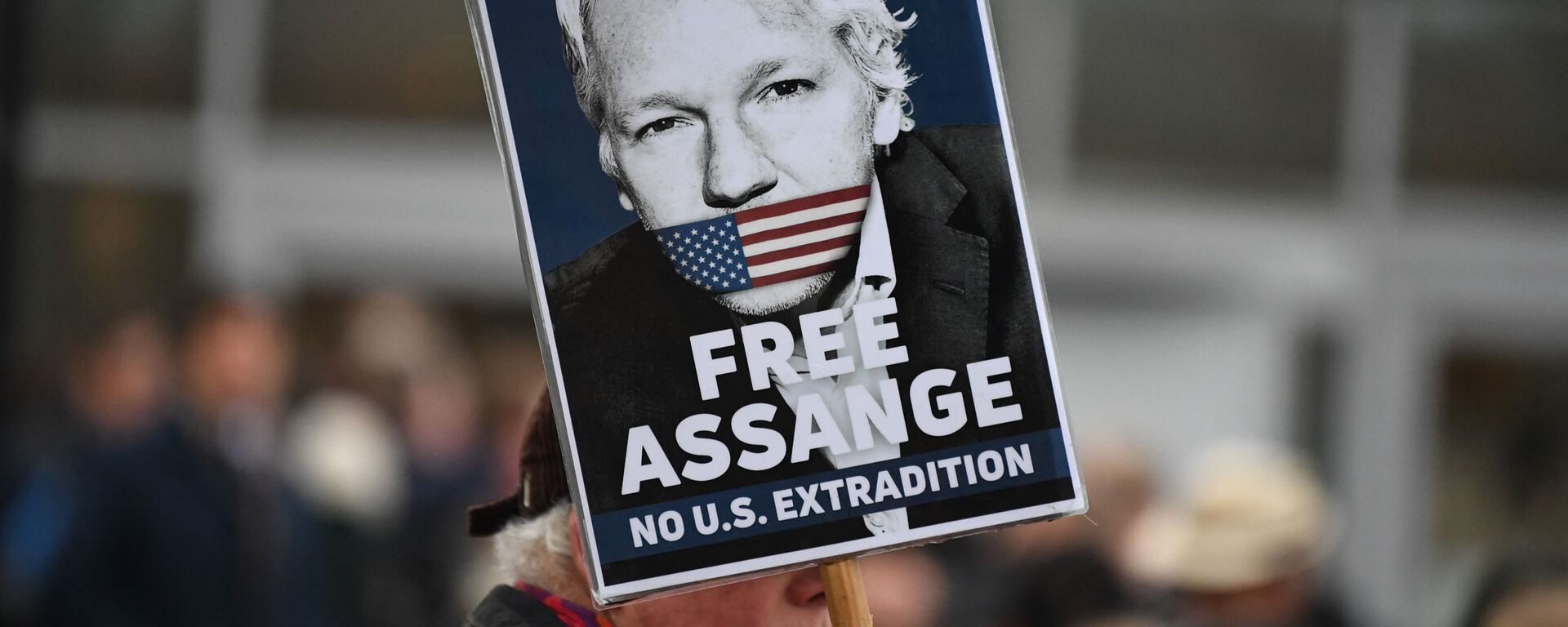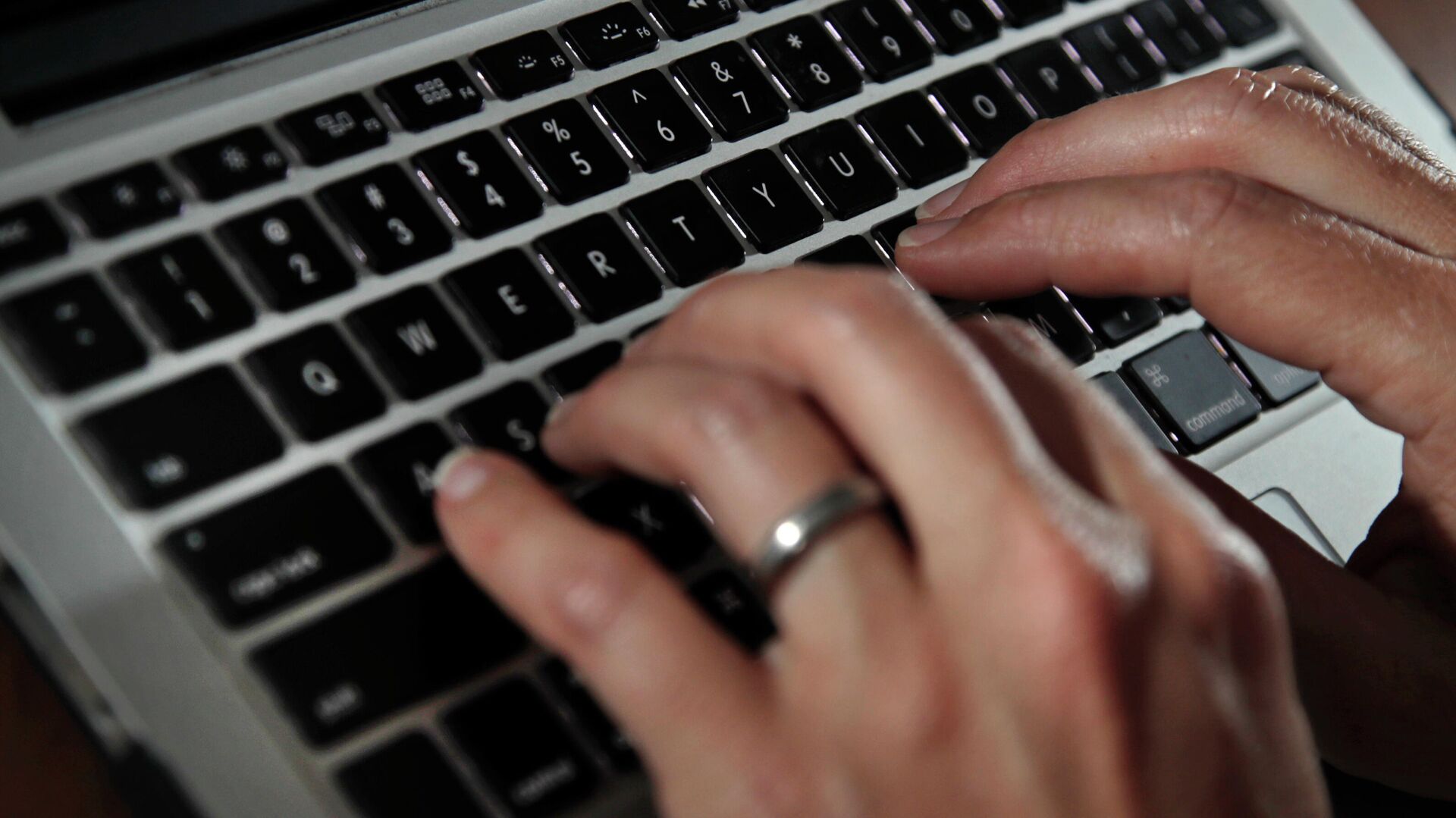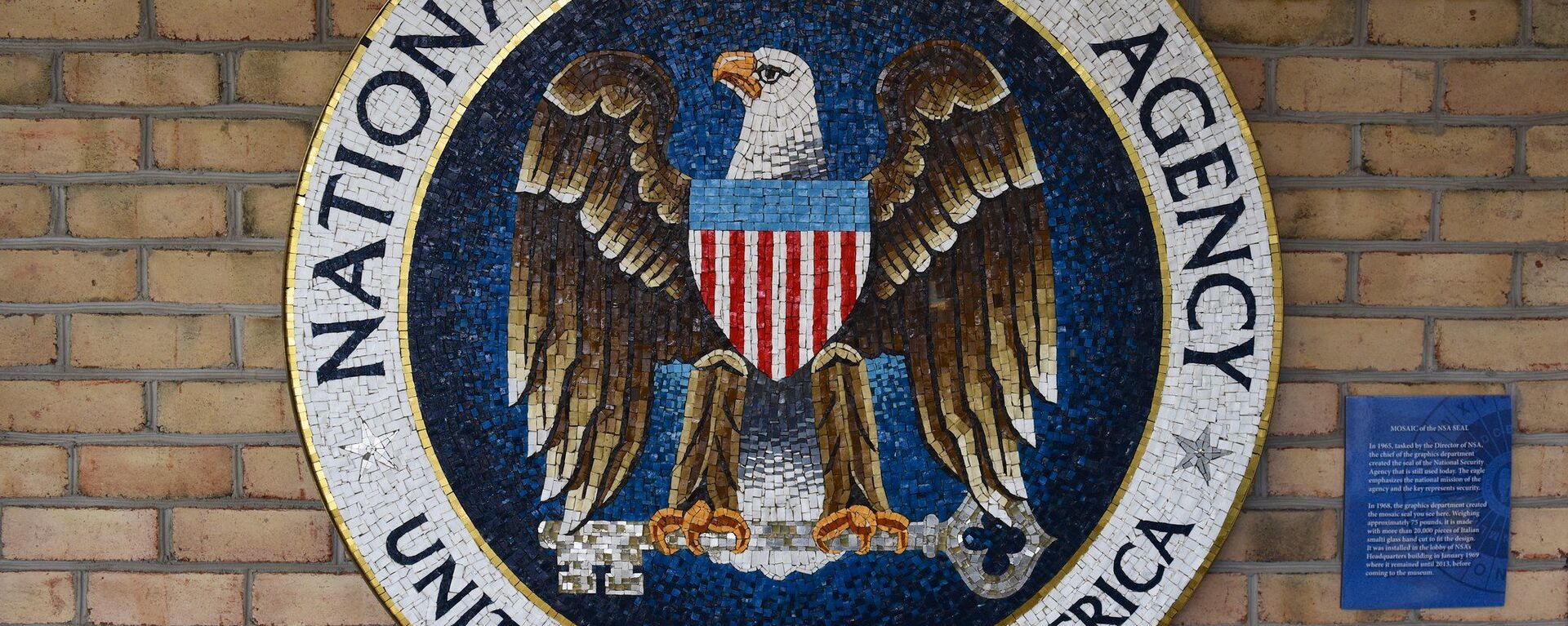https://sputnikglobe.com/20231006/eu-allowing-spying-on-journalists-part-of-normalized-digital-surveillance-1113987729.html
EU Allowing Spying on Journalists Part of 'Normalized' Digital Surveillance
EU Allowing Spying on Journalists Part of 'Normalized' Digital Surveillance
Sputnik International
Earlier this week, the European Parliament rejected an attempt to ban governments from spying on journalists, but instead claimed it had passed what amounted to a de facto ban on spyware.
2023-10-06T21:45+0000
2023-10-06T21:45+0000
2023-10-06T21:45+0000
analysis
european union (eu)
pegasus
spyware
journalist crackdown
digital privacy
https://cdn1.img.sputnikglobe.com/img/07e5/0a/1f/1090356451_0:259:3181:2048_1920x0_80_0_0_8176e0f07540524a1e3877ad5709b539.jpg
Rights groups denounced the decision, saying such safeguards can never be adequate because of a long history of abusing people's rights.The EP’s decision comes two years after it was revealed that dozens of governments around the globe, including several in Europe, were using the Pegasus spyware to monitor the phones of journalists, activists, and politicians both in their own countries and in others. Pegasus is designed by the NSO Group, an Israeli company connected to the Mossad, Israel's foreign espionage agency.Sputnik spoke with Nebojsa Malic, a Serbian-American journalist who is a senior writer at RT, about the EP's decision and the growing trend of "normalizing" electronic eavesdropping.Asked if he knew if he’d been spied on as an anti-war journalist, Malic told Radio Sputnik's The Final Countdown on Thursday, "I would be shocked if I haven't been."“I mean, I have family in the Balkans and I too could hear clicks on the phones when I would communicate with them over the years.”"The EU has really been pushing hard for censorship and surveillance for the past two years - openly. I mean, let's remember that they're the ones who banned RT specifically, and Sputnik as well, off of YouTube and that YouTube decided to make that ban worldwide. They just outright banned it, censored it, they said, 'we're just going to censor this because we say so,'" Malic explained."Americans tend to not understand this because, okay, the First Amendment says free speech is near-absolute, and yet there's been this creeping notion of, 'well, you know, yes, but hate speech, and what about things that we dislike,’ and it's just one of those ‘no, it really should be absolute', that people don't understand here anymore. But the leap from that to the European governments having the right to ban whatever speech they dislike is just beyond most people on this continent because they're just not used to it. Whereas in Europe, censorship has been a feature, not a bug, for centuries."The amendment that was voted down would have removed a passage from the European Media Freedom Act that permits EU governments to surveil journalists."So notice how it is framed," Malic told the hosts. "They're saying that spying on everybody is fine, but the people who proposed the amendment, they're like, 'well, surely you don't want to spy on journalists?' And so you're you're basically carving out a special protected class of journalists, which I'm sure that the European commissars in charge of this stuff would adore, because they would then get to decide who is a legitimate journalist.""Now, this particular moment, this is why I was skeptical of it to begin with, because [they say] ‘well, blanket surveillance is fine - the type of stuff that Snowden exposed ten years ago - blanket surveillance is fine, but surely we don't want to do it to a specially protected journalist class that we wish to designate,’ and that somehow didn't go through. Color me shocked."Malic noted that while it's true that accredited journalists are already afforded special protections and privileges, such as at crime scenes and on battlefields, but pointed out that under US law, anybody can be a "citizen journalist" but not be afforded such protections.Still, at the end of the day, there's almost no such thing as being totally private in today's modern technological world where people use social media and browse the internet, Malic noted."Honestly, at the end of the day, three men can keep a secret if two of them are dead," he quipped. "There is no true security of information. Anything you say, as the Miranda rights litany goes, can and will be used against you. And I think, unfortunately, it would behoove us all to go about our lives, remembering that. Yes, there are technological platforms that claim to offer privacy, which everybody really should just go in with the assumption that, you know, this is merely friction as opposed to an obstacle, and that if the government or somebody else close to the circuits of power wants to get that information, they will be able to do so."
https://sputnikglobe.com/20230927/sweeping-surveillance-censorship-site-hosting-russell-brand-has-uncertain-future-in-uk-1113751814.html
https://sputnikglobe.com/20230906/french-court-reportedly-rejects-request-for-julian-assange-to-apply-for-asylum-in-france-1113142259.html
https://sputnikglobe.com/20230730/nsa-opposes-congress-attempts-to-curb-its-spying-on-us-citizens-1112268096.html
Sputnik International
feedback@sputniknews.com
+74956456601
MIA „Rosiya Segodnya“
2023
News
en_EN
Sputnik International
feedback@sputniknews.com
+74956456601
MIA „Rosiya Segodnya“
Sputnik International
feedback@sputniknews.com
+74956456601
MIA „Rosiya Segodnya“
european parliament; spyware; digital surveillance; pegasus; nso group
european parliament; spyware; digital surveillance; pegasus; nso group
EU Allowing Spying on Journalists Part of 'Normalized' Digital Surveillance
Earlier this week, the European Parliament rejected an attempt to ban governments from spying on journalists, but instead claimed it had passed what amounted to a "de facto ban" on spyware. The new clause includes language they say protects the confidentiality of journalistic sources.
Rights groups denounced the decision, saying such safeguards can never be adequate because of a long history of abusing people's rights.
"It is going to be hard now to change this. Getting a full ban on spyware is basically dead now," said Chloé Berthélémy, a senior policy adviser at European Digital Rights. "The European parliament missed a unique opportunity to protect journalists against abusive state surveillance using nefarious spying tools. Recent scandals in France involving the surveillance and prosecution of several investigative journalists are a foretaste of future abuses across the EU."
The EP’s decision comes two years after it was revealed that dozens of governments around the globe, including
several in Europe, were using the
Pegasus spyware to monitor the phones of journalists, activists, and politicians both in their own countries and in others. Pegasus is
designed by the NSO Group, an Israeli company connected to the Mossad, Israel's foreign espionage agency.
Sputnik spoke with Nebojsa Malic, a Serbian-American journalist who is a senior writer at RT, about the EP's decision and the growing trend of "normalizing" electronic eavesdropping.
Asked if he knew if he’d been spied on as an anti-war journalist, Malic told
Radio Sputnik's The Final Countdown on Thursday, "I would be shocked if I haven't been."

27 September 2023, 23:04 GMT
“I mean, I have family in the Balkans and I too could hear clicks on the phones when I would communicate with them over the years.”
"It shouldn't be normal. It's become normalized," he said. "People are like, 'oh, well, of course you're going to be spied on,’ but there's no reason we should accept this. Just because something is an observable reality doesn't mean it should be - sort of an inverse of what I usually say when discussing politics, ‘just because you wish something is so doesn't mean it is.'"
"The EU has really been pushing hard for censorship and surveillance for the past two years - openly. I mean, let's remember that they're the ones who banned RT specifically, and Sputnik as well, off of YouTube and that YouTube decided to make that ban worldwide. They just outright banned it, censored it, they said, 'we're just going to censor this because we say so,'" Malic explained.
"Americans tend to not understand this because, okay, the First Amendment says free speech is near-absolute, and yet there's been this creeping notion of, 'well, you know, yes, but hate speech, and what about things that we dislike,’ and it's just one of those ‘no, it really should be absolute', that people don't understand here anymore. But the leap from that to the European governments having the right to ban whatever speech they dislike is just beyond most people on this continent because they're just not used to it. Whereas in Europe, censorship has been a feature, not a bug, for centuries."
The amendment that was voted down would have removed a passage from the
European Media Freedom Act that permits EU governments to surveil journalists.

6 September 2023, 01:41 GMT
"So notice how it is framed," Malic told the hosts. "They're saying that spying on everybody is fine, but the people who proposed the amendment, they're like, 'well, surely you don't want to spy on journalists?' And so you're you're basically carving out a special protected class of journalists, which I'm sure that the European commissars in charge of this stuff would adore, because they would then get to decide who is a legitimate journalist."
"And so this is one of those things that's - you know, the Soviet Constitution was the most perfect in the world on paper - in actual application, not so much. Europeans have all these laws supposedly protecting freedom of expression and freedom of the press - in practice, however, it's: if the government doesn't like you, they will censor you, they will arrest you, they will make up accusations like with Julian Assange and keep you in effectively in an oubliette for years while you're being slowly strangled by legal proceedings."
"Now, this particular moment, this is why I was skeptical of it to begin with, because [they say] ‘well, blanket surveillance is fine - the type of stuff that Snowden exposed ten years ago - blanket surveillance is fine, but surely we don't want to do it to a specially protected journalist class that we wish to designate,’ and that somehow didn't go through. Color me shocked."
Malic noted that while it's true that accredited journalists are already afforded special protections and privileges, such as at crime scenes and on battlefields, but pointed out that under US law, anybody can be a "citizen journalist" but not be afforded such protections.
"I'm sure there's plenty of people in this country who would like to have a special dispensation for the New York Times, or the Washington Post, or any sort of regime-friendly outlet, and zero protections for an independent blogger trying to document what's going on on the ground. But that's the kind of two-tier system that this kind of legislation would produce. You would effectively have protections for state media - or corporate media close to the state and serving the state - and anybody who's trying to criticize the state would have a barrier to entry. It's kind of like, as I mentioned, a feature not not a bug, that you basically had to have printing licenses, back in the old days of the after the printing press, which is invented because because rulers wanted to control the dissemination of information and you'd have to have a publishing license and it was essentially gatekeeping to make sure that only those who whose message the government approves would be allowed to disseminate it. And you'd think that, you know, in modern liberal democracies we were beyond that. But no, we were regressing to this kind of feudalism instead."
Still, at the end of the day, there's almost no such thing as being totally private in today's modern technological world where people use social media and browse the internet, Malic noted.
"Honestly, at the end of the day, three men can keep a secret if two of them are dead," he quipped. "There is no true security of information. Anything you say, as the Miranda rights litany goes, can and will be used against you. And I think, unfortunately, it would behoove us all to go about our lives, remembering that. Yes, there are technological platforms that claim to offer privacy, which everybody really should just go in with the assumption that, you know, this is merely friction as opposed to an obstacle, and that if the government or somebody else close to the circuits of power wants to get that information, they will be able to do so."







